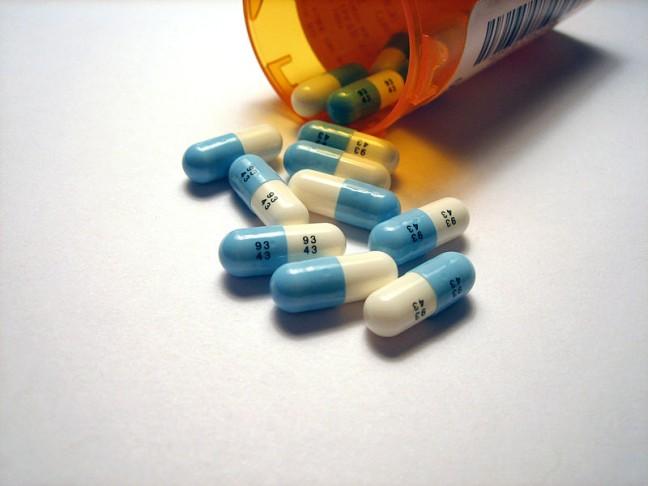A pharmaceutical price-gouging bill, which would give Wisconsin’s attorney general the power to lower prices on generic medications, was introduced in a press conference Wednesday by advocates for the bill.
Sen. Dave Hansen, D-Green Bay, Rep. Jimmy Anderson, D-Fitchburg and Dr. Robert Kraig, executive director of the non-profit advocacy group Citizen Action Wisconsin, unveiled the bill and called its passage necessary to ensure people in Wisconsin can afford access to lifesaving medications.
“We’ve seen situations where you have 1,000, 2,000, 5,000 percent increases on drugs that are not new — there are no new research costs — that simply have to do with the fact that the manufacturers are in a position to do it because there isn’t enough competition and people have nowhere else to go,” Kraig said.
The legislation is based on a Maryland model passed last year allowing the state’s attorney general to prosecute drug firms that substantially raise the price of off-patent drugs, Kraig said.
In Wisconsin, the attorney general would be able to obtain documentation from drug manufacturers within 45 days itemizing the cost of producing the drug, circumstances and timing of any increase in cost, expenditures used to expand access to the drug and justifications for raising its cost. The attorney general would then have the discretion to block the maker of the drug from increasing its price.
Hansen said the bill is not aimed at reigning in all drug price increases but only the increases which the attorney general deems as price gouging, defined as excessive and unjustified rate increases of a drug when no other alternative medication or competition exists.
“To be sure, many, if not most, makers and distributors of generic and off-patent drugs do their best to keep them affordable for the people that need them,” Hansen said. “Some less scrupulous companies, however, look sadly to corner the market on a specific off-patent or generic drug and raise prices simply because they can. And the reason they can is because the drugs are critically important to the health and well-being of so many people who really need these drugs to survive and be well.”
A 2016 Government Accountability Office report found one in five generic drugs had an “extraordinary price increase” of at least 100 percent from 2010-15, with many generic drugs increasing at rates far beyond that. In one year, the asthma medication Albuterol, for instance, increased in price by 4,014 percent, and Doxycycline, a medication for bacterial infections, jumped in price by 8,281 percent, a report from the House Committee on Oversight detailed.
Hansen hopes the state legislature will be bipartisan in supporting the bill as they did in the early 2000s when SeniorCare — a program which helps seniors pay for prescription drugs — passed.
Doctor Nike Mourikes, a physician and assistant clinical professor in the Department of Medicine at the University of Wisconsin, joined other advocates in favor of the bill and said one in five Americans fail to fill their prescriptions each year because of costs.
“The rising costs of medications, in particular, is imposing increasing hardships,” Mourikes said. “The current and growing trend of price gouging is another indignity that pulls on our patients.”
Neither Hansen or Kraig were certain current Attorney General Brad Schimel would use his discretion to block price increases but said the bill would, for the first time ever, hold someone accountable for price gouging.
If Schimel didn’t block the excessive profit-seeking behavior of predatory drug makers, he would have to answer to those he represents in Wisconsin, Kraig said.
“It may not be this attorney general, it may be the next,” Hansen said. “But get it on the books and let [drug manufacturers] know that price gouging is absolutely wrong.”


